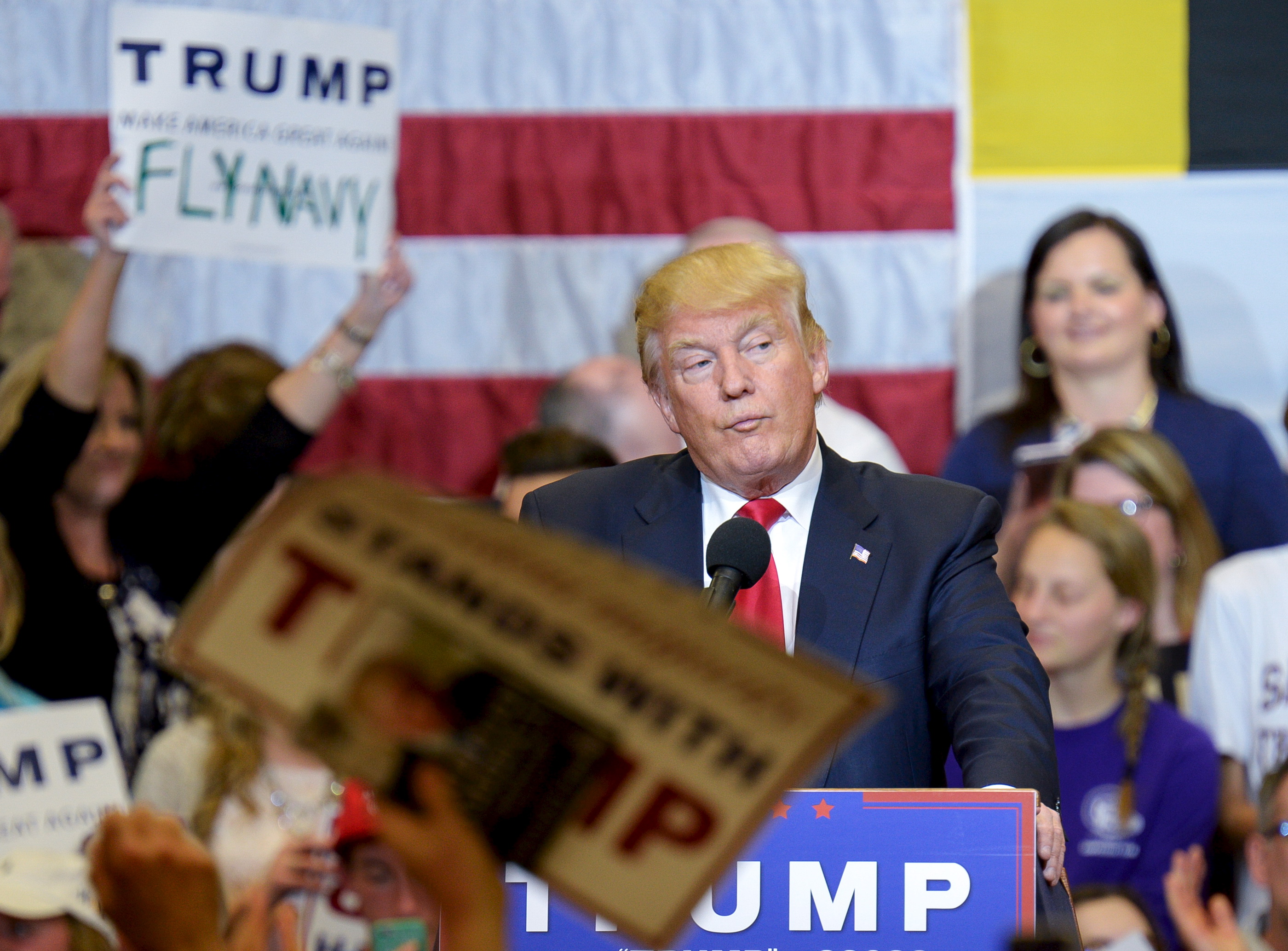Confessions of a Trump-skeptical conservative
I've voted for every GOP nominee for several decades. I'm still not ready to back Trump.


For more than three decades, no one who knows me even casually has ever thought to ask me whether I will vote for the Republican presidential nominee in a general election. As a conservative and a Republican, my vote has been assured as soon as the nomination was clinched.
But in 2016, the strangest political cycle of my lifetime, the same question from family, friends, and colleagues has come up repeatedly: Will you vote for Donald Trump? And the answer is… I don't know. For the first time in my adult life, I just can't say.
The #NeverTrump movement has made this issue especially relevant, although this noble conservative effort has also clearly run out of options other than principled abstentions at this stage. Conservative writer, thinker, and activist David French considered an urgent entreaty to tilt at the independent-bid windmill, encouraged by Weekly Standard editor Bill Kristol, and politely took a pass earlier this week. French still believed an effective independent bid could be launched, but wrote that it would take "a person who either is extraordinarily wealthy… or is a transformational political talent."
The Week
Escape your echo chamber. Get the facts behind the news, plus analysis from multiple perspectives.

Sign up for The Week's Free Newsletters
From our morning news briefing to a weekly Good News Newsletter, get the best of The Week delivered directly to your inbox.
From our morning news briefing to a weekly Good News Newsletter, get the best of The Week delivered directly to your inbox.
The fact that no one with those qualifications has stepped forward provides an indication of the difficulty of that path, if not its utter impossibility. Barring an unprecedented and cataclysmic event, the two candidates with any rational chance at winning the White House are Hillary Clinton and Donald Trump.
Faced with the possibility of another President Clinton, many Republicans were starting to come around on Trump. And then he began attacking Judge Gonzalo Curiel, who is presiding over the lawsuit brought against Trump University. Trump repeatedly accused Curiel, the son of immigrants from Mexico, of having an inherent and disqualifying bias in the case on the basis of his ethnicity. A number of Republicans who had previously issued statements of support for Trump, including longtime surrogate Newt Gingrich and House Speaker Paul Ryan, publicly criticized Trump for his vulgar and bigoted attack. Even the co-chair of Trump's New York campaign called it "a stupid comment," and called on the candidate to stop making it.
NPR host Scott Simon confronted me with the remarks in an interview on the latest Weekend Edition. "Horrible, absolutely horrible — and I mean morally horrible," I replied, "And I think it's a difficult, difficult, difficult thing to deal with when you're trying to figure out whether or not you want to cast a vote for somebody." So why, Simon wondered, was I not prepared to "hold my nose and vote for a Democratic nominee?"
"Because I think she's morally reprehensible as well," I replied.
A free daily email with the biggest news stories of the day – and the best features from TheWeek.com
As the State Department inspector general reported, Clinton used an unauthorized and unsecure email server based out of her house in order to hide her communications from legitimate congressional and judicial oversight. Her team was warned more than once that her use of private email would violate the Federal Records Act as well as thwart the checks and balances between the three branches of government. Clinton proceeded to use her system anyway, and it did result in misrepresentations about records on official business in a number of FOIA demands and congressional requests.
That clearly was Clinton's plan from the beginning. It was a deliberate decision to engage in corruption of the constitutional safeguards meant to limit power to those in office. Even apart from the question of whether Clinton acted in a criminal manner in regard to classified information — a question the FBI has dozens of agents investigating to this day — her actions intended to damage the very fabric of self-governance and the status of officeholders as servants rather than masters.
The problem facing voters in this general election is that the two major parties produced nominees who might only have been able to beat each other. They have the worst personal favorability ratings of major-party nominees in decades, if not ever. Both have given voters many reasons for offense, and few reasons to cheer them. Neither party will prosper much by having either of them serve as its public face for the next four years.
So when I look at the 2016 presidential election, the real question comes down to this: Which candidate will give me the best opportunity to advance the policies and issues that matter to me as a voter? If the race comes down to a binary choice between two reprehensible characters, both of whom have issues about power and oversight, then I will have to choose the one who best answers that question.
That is the actual question voters need to consider as we head into the general election. We must decide between realistic choices rather than what we wish would work. To make that decision, though, I will need to be convinced that Trump will actually provide a difference in policies and issues, rather than just act transactionally, with Trump as his only core value.
I'm just not sure.
Edward Morrissey has been writing about politics since 2003 in his blog, Captain's Quarters, and now writes for HotAir.com. His columns have appeared in the Washington Post, the New York Post, The New York Sun, the Washington Times, and other newspapers. Morrissey has a daily Internet talk show on politics and culture at Hot Air. Since 2004, Morrissey has had a weekend talk radio show in the Minneapolis/St. Paul area and often fills in as a guest on Salem Radio Network's nationally-syndicated shows. He lives in the Twin Cities area of Minnesota with his wife, son and daughter-in-law, and his two granddaughters. Morrissey's new book, GOING RED, will be published by Crown Forum on April 5, 2016.
-
 In Okinawa, experience the more tranquil side of Japan
In Okinawa, experience the more tranquil side of JapanThe Week Recommends Find serenity on land and in the sea
-
 The Iberian Peninsula is rotating clockwise
The Iberian Peninsula is rotating clockwiseUnder the radar We won’t feel it in our lifetime
-
 San Francisco tackles affordability problems with free child care
San Francisco tackles affordability problems with free child careThe Explainer The free child care will be offered to thousands of families in the city
-
 The billionaires’ wealth tax: a catastrophe for California?
The billionaires’ wealth tax: a catastrophe for California?Talking Point Peter Thiel and Larry Page preparing to change state residency
-
 Bari Weiss’ ‘60 Minutes’ scandal is about more than one report
Bari Weiss’ ‘60 Minutes’ scandal is about more than one reportIN THE SPOTLIGHT By blocking an approved segment on a controversial prison holding US deportees in El Salvador, the editor-in-chief of CBS News has become the main story
-
 Has Zohran Mamdani shown the Democrats how to win again?
Has Zohran Mamdani shown the Democrats how to win again?Today’s Big Question New York City mayoral election touted as victory for left-wing populists but moderate centrist wins elsewhere present more complex path for Democratic Party
-
 Millions turn out for anti-Trump ‘No Kings’ rallies
Millions turn out for anti-Trump ‘No Kings’ ralliesSpeed Read An estimated 7 million people participated, 2 million more than at the first ‘No Kings’ protest in June
-
 Ghislaine Maxwell: angling for a Trump pardon
Ghislaine Maxwell: angling for a Trump pardonTalking Point Convicted sex trafficker's testimony could shed new light on president's links to Jeffrey Epstein
-
 The last words and final moments of 40 presidents
The last words and final moments of 40 presidentsThe Explainer Some are eloquent quotes worthy of the holders of the highest office in the nation, and others... aren't
-
 The JFK files: the truth at last?
The JFK files: the truth at last?In The Spotlight More than 64,000 previously classified documents relating the 1963 assassination of John F. Kennedy have been released by the Trump administration
-
 'Seriously, not literally': how should the world take Donald Trump?
'Seriously, not literally': how should the world take Donald Trump?Today's big question White House rhetoric and reality look likely to become increasingly blurred
